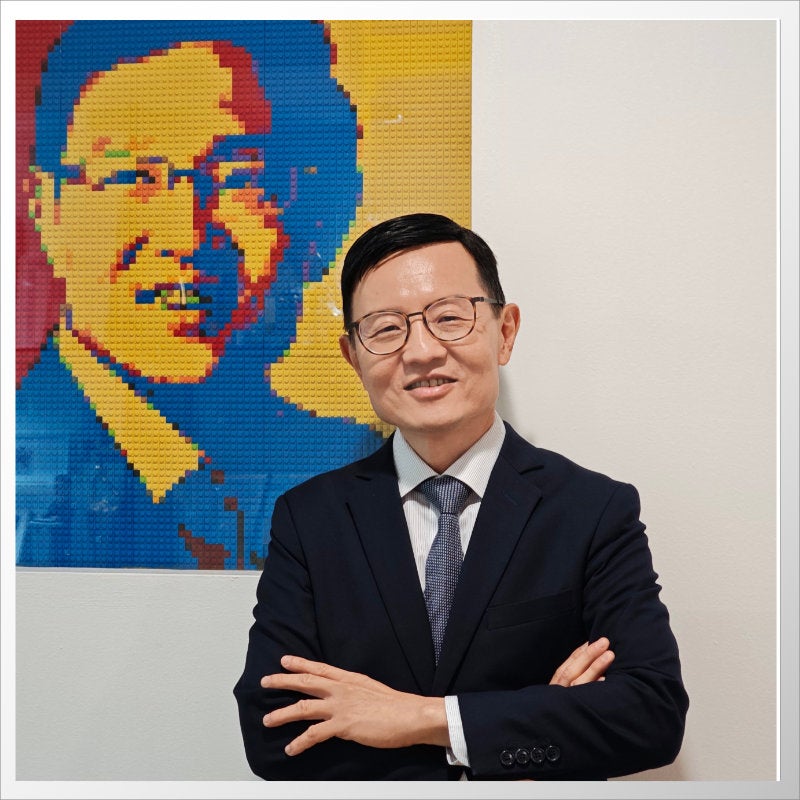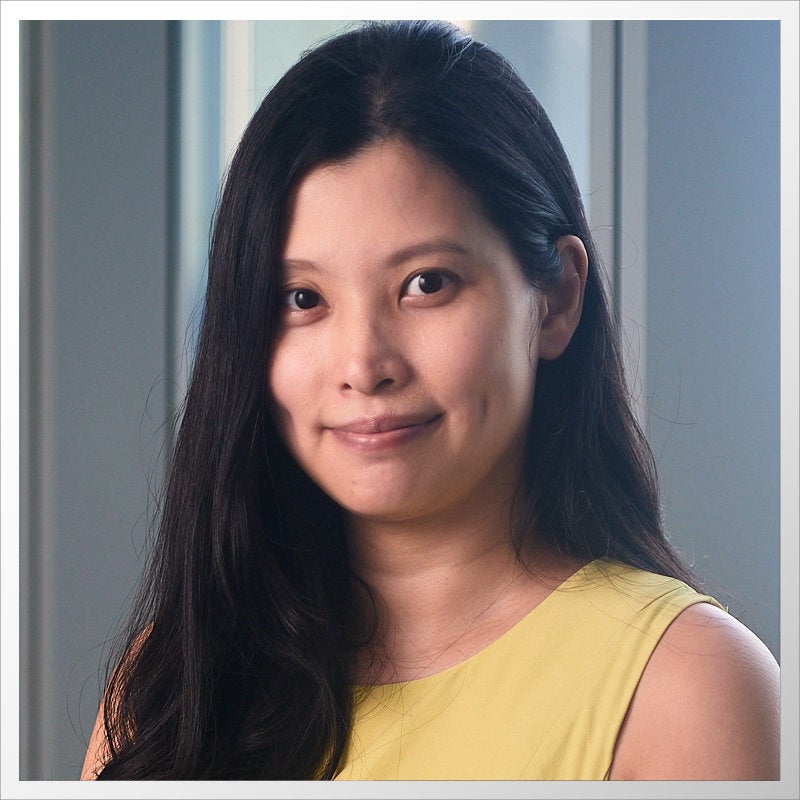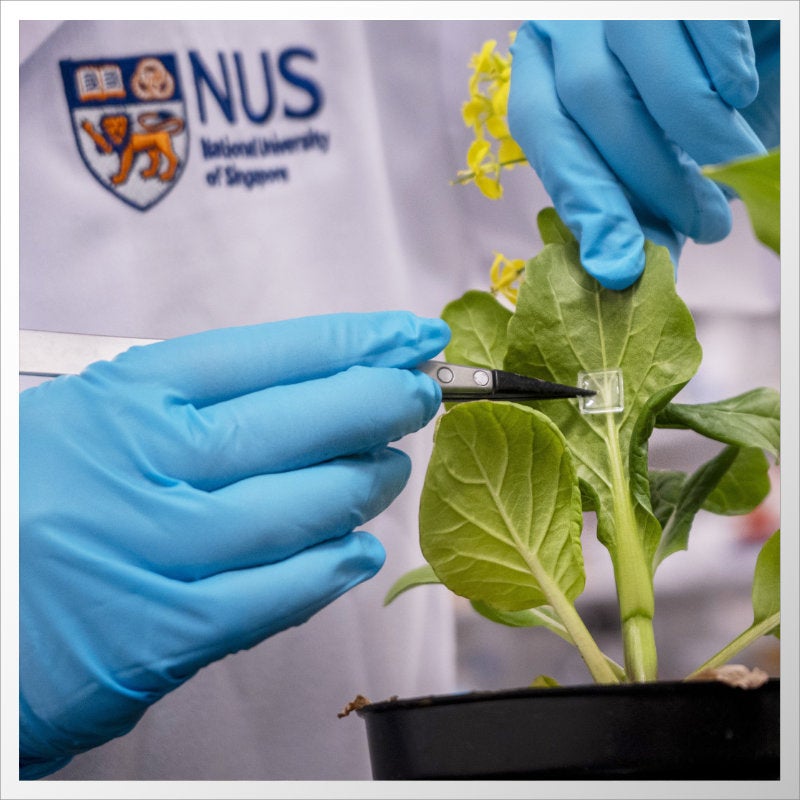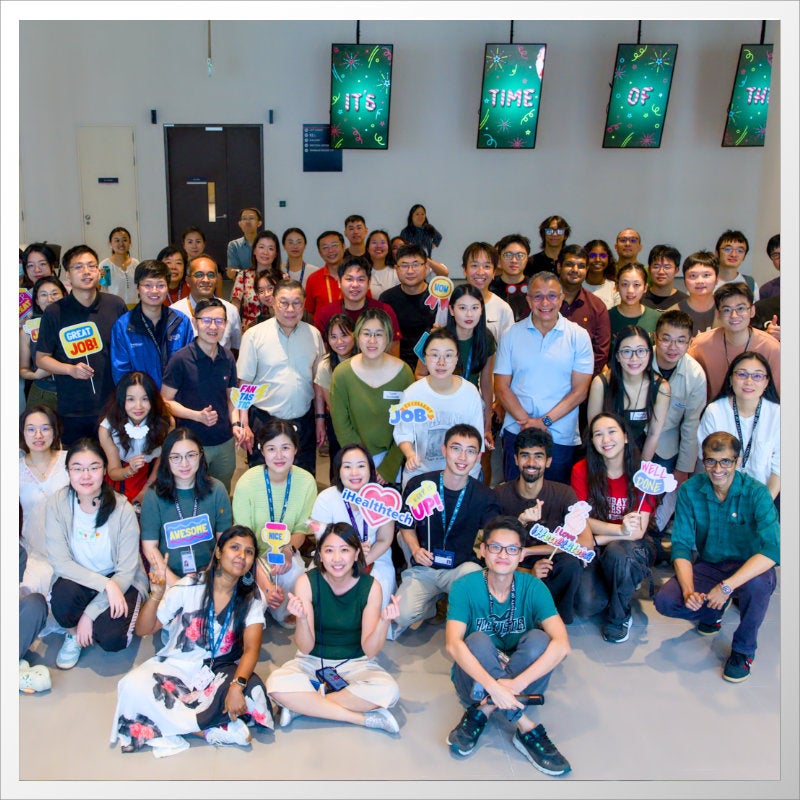NUS-KAIST International Workshop
- October 23, 2017
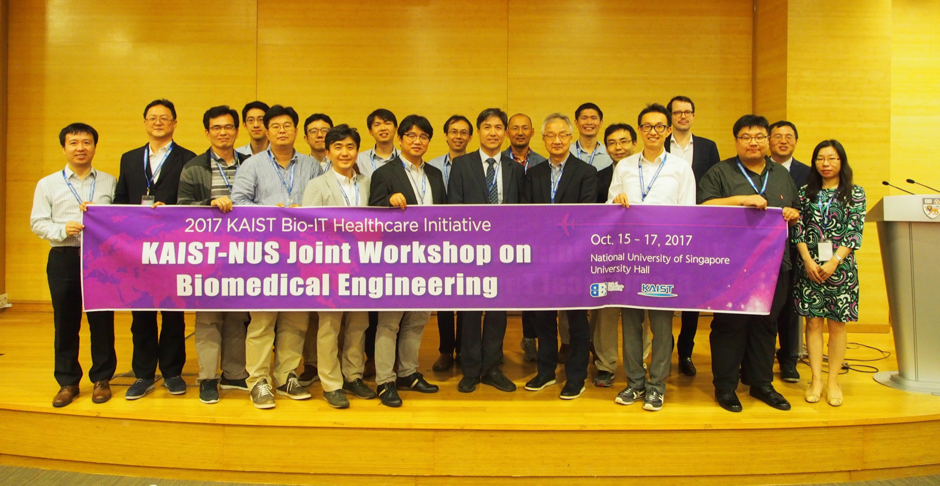
Published in NUS News.
NUS Biomedical Institute for Global Health Research and Technology (BIGHEART) and NUS Biomedical Engineering collaborated with the Korea Advanced Institute of Science and Technology (KAIST) to conduct a workshop on global healthcare on 16 October.
The stimulating full-day programme discussed a range of research areas from bioinformatics and computational neuroscience to medical imaging and nanomedicine. This included talks on brain tumour image-based predictions by Assistant Professor Ren Hongliang from NUS Biomedical Engineering as well as wireless technologies for bioelectronic therapies by Assistant Professor John Ho from NUS Electrical and Computer Engineering. Speakers from KAIST Bio and Brain Engineering included Head of Department Professor Kwang-Hyun Cho who touched on cancer systems biology and Assistant Professor Sang Wan Lee who explored understanding reinforcement learning through machine learning and computational neuroscience.
BIGHEART Director Professor Luke Lee, NUS Associate President for International Research and Innovation, commended the shared interest among participants to create “patient-centered rather than bureaucratic-centered engineering solutions for healthcare”.
Prof Cho added that the KAIST team found it enriching to learn about the facilities at NUS BIGHEART and NUS Biomedical Engineering and hoped that the workshop would be a stepping stone to a stronger partnership between the two institutions going forward.
The workshop is part of an initiative by the Department of Bio and Brain Engineering at KAIST and the KAIST Bio-IT Healthcare initiative to develop an international collaborative network for furthering education and research in biomedical engineering.
A Memorandum of Understanding was also signed between NUS and the KAIST Department of Bio and Brain Engineering on 15 October to promote joint research and development activities of mutual interest and benefit in the areas of bioinformatics, bioelectronics, bionano, neural engineering and biomedical imaging.



